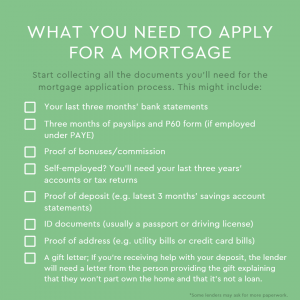Navigating Mortgages: A Guide for First Time Buyers.
Join us on Saturday 22nd April (2023) from 10am – 5pm at Northdale Park, Raunds for our First-Time Buyers event!
Are you thinking about buying your first home? Are mortgages getting you in a muddle? We’ve got the perfect guide! Read on to find out more…
Understanding Mortgages
A mortgage is a financial loan provided by a bank or building society (the lender) to help you purchase a property. As the borrower, you agree to repay the lender over time by regular repayments, typically over 25 years or until the loan is fully paid off. Payment plans can range from six months to 40 years depending on your financial circumstances.
*NEED TO KNOW: A mortgage is secured against your home, which means you risk losing it if you fail to meet your payment obligations.
Mortgage Terminology Explained
Base rate: The Bank of England’s rate that guides the economy on interest rate setting and valuation.
Interest rate: The percentage charged by a lender on top of the loan amount (e.g., borrowing £200,000 at a 5% interest rate means repaying the £200,000 plus £10,000 in interest).
Fixed rate: A set monthly payment amount agreed upon by your lender for a specified period, regardless of interest rate fluctuations.
Qualifying for a Mortgage
Each mortgage lender sets its own criteria for lending money, so it’s essential to do your research and shop around, just as you would when applying for a credit card or travel insurance!
Generally, a mortgage lender will consider the following factors:
- Loan amount needed
- Available deposit (cash savings)
- Type of property being purchased
- Employment status (longer job tenure is preferred)
- Existing debts or loans
- Regular spending habits
- Number of dependents (e.g., family members relying on your income)
- Credit rating (e.g., Experian or Clear Score)
- Affordability of the mortgage, considering all of the above.
Mortgage Types
Interest-only mortgage: Exactly what it says! Your monthly payments only cover the loan’s interest. At the end of the term, you’ll still owe the original amount borrowed. Payments are lower than those of a repayment mortgage but are less common due to lenders wanting assurance of a borrower’s ability to repay the loan.
Repayment mortgage: This is the most common, where you pay both the loan’s interest and the original balance you borrowed. Monthly payments decrease over time as the outstanding balance shrinks. Ideally, you’ll own your home outright after completing regular payments over a set period (e.g., 25 years).
Fixed-rate mortgage: Three-quarters of the UK use this payment plan! Your interest rate remains the same for a set number of years, meaning your monthly payments stay consistent regardless of changes to the Bank of England’s base rate. Fixed-rate mortgages typically have two-year or five-year terms, but longer terms are available.
Variable mortgage: Influenced by the Bank of England’s base rate and subject to fluctuation. Your monthly payments will vary depending on the base rate. Variable mortgages include standard variable rate mortgages (SVR), discounted variable rate mortgages (DVR), and tracker rate mortgages.
Green mortgage: These are designed to encourage environmentally friendly and efficient properties by rewarding borrowers with better interest rates or cashback. Two types of green mortgages are available, either for high-EPC-rated properties or for homeowners making their property greener.
Understanding the basics of mortgages can help you make informed decisions when it comes to buying a home and securing your financial future. Ready for the next step? Here’s a handy checklist of what to prepare before applying for your mortgage!
